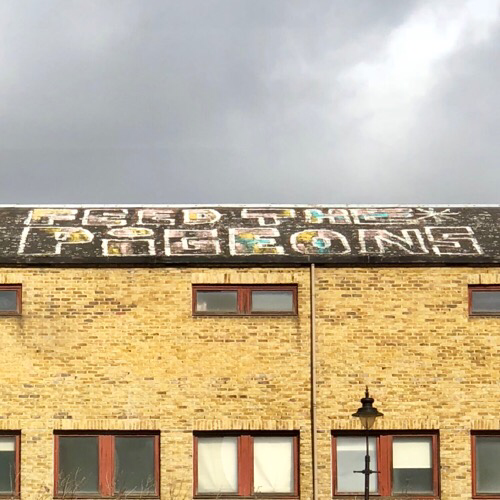# Feed the pigeons.

Comments
Relationships
Back in 2010 I wrote that relationships were the real social currency but at the time meant it more in a data sense than an interpersonal one.
As I expanded here:
"It is the relationships between people, relationships between us and our interests, relationships between data points and their intersections."
That's the business side of it: patterns, trends, targeting.
But then I wrote more recently that it is:
"time to treat our connections as individuals again, as whole people and not just the sum of their social units."
It's those relationships that matter, that we should cultivate; real ones, with whole people, with depth and care and feeling.
John Johnston wrote that he hoped to make his microcast more personal in episodes to come to which I replied that I look forward to it - and I genuinely do. John has been a worthy acquaintance over the past year but I want to move beyond that with people.
We make connections over the web, on social networks, but they are almost always painfully casual acquaintances; they often lack the depth and care to be truly productive. Either party could go offline and not be missed as there is a feed full of identikit replacements lining up to take their place.
The more I think about it the more I feel we need a shift to the personal side of the equation, the side where we know people and they genuinely matter to each other.
It is amazing that, in real time, we can speak to someone on the other side of the world in any number of ways but this globalisation has come at the expense of "local" on both interpersonal and societal levels.
We have become obsessed with always seeing the bigger picture, the generalisations which homogenise our behaviour, while missing the subtleties and nuance, the unique and the particular.
Relationships are the real social currency but, from an individual perspective, that currency looks markedly different and holds a distinctly different value from that hoarded by the networks.
Comments
# I've mentioned before that I love how Feedbin shows posts which have been updated and what those updates actually are.
Most bloggers will update a post from time to time, correct a typo or factual faux pas but once a post is done that's generally it.
But it doesn't have to be.
I've linked to Ann Althouse a couple of times before but really wanted to highlight how she writes. As well as having full posts done in one go she will often publish a beginning and then build on it over time as she processes the subject or more related news becomes available.
Take this extract from a post today:

I think that's great!
There's nothing that says a post is immutable, that it can't be extended or iterated. Still, our entrapment in ever flowing reverse chronological feeds has meant we don't return to something once we have visited. It's gone, history.
This is where the Feedbin functionality is perfect. A post can be updated any number of times and I will be prompted to go back, to re-engage.
Several years ago I pondered the "update vs new post" question but online convention usually dictates a new post so that others actually see it. Having each day as a sequence of chronological items, however, is kind of a half way house: yes, each item is separate but designed to be read in sequence and in situ.
Still, it's such a shame that we have gotten out of the habit of visiting sites directly, experiencing them as the owner intended. As RSS reader is the next best thing but it's just not the same.
Comments
# And, of course, making regular visits to a person's actual site, maybe leaving some comments, helps to build that relationship.

@colinwalker ?
That's cool, Colin. Keep posting pictures; I like 'em.